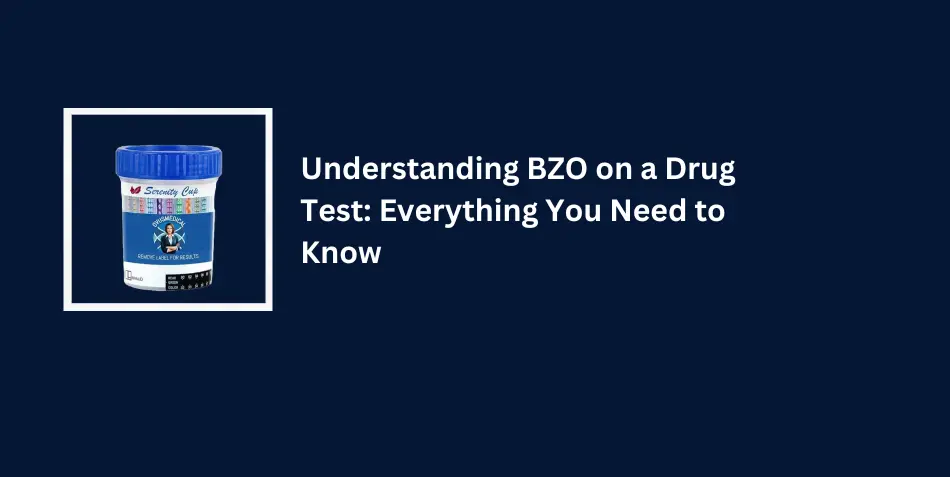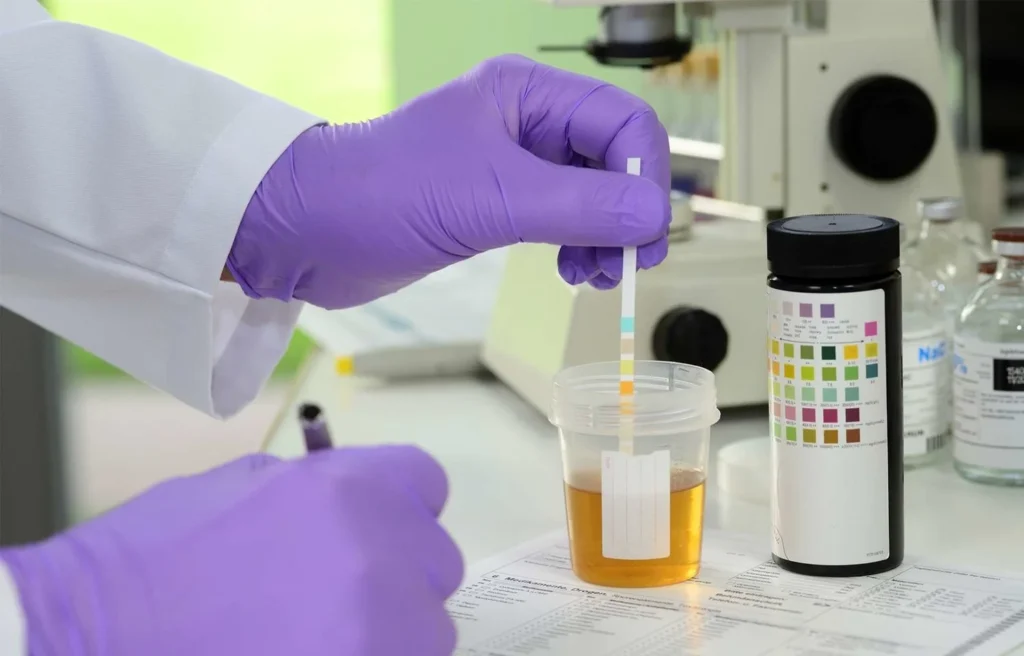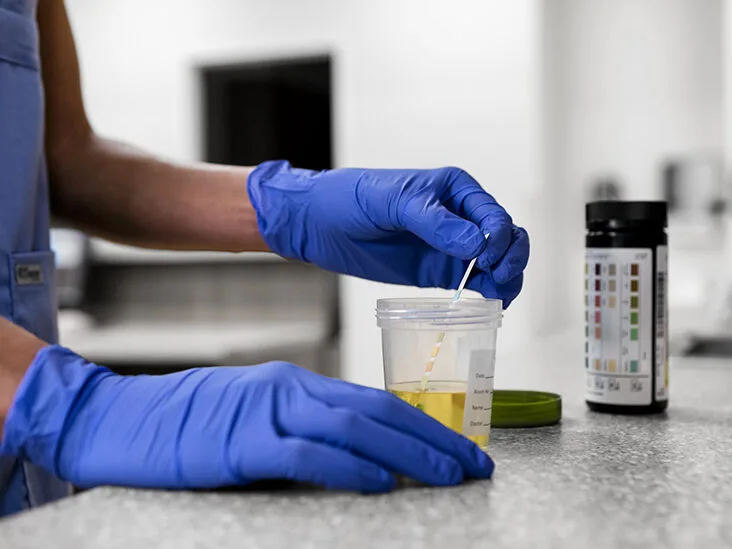When it comes to drug testing, understanding the terminology and its implications is crucial. One term that often raises questions is “BZO on a drug test.” In this comprehensive guide, we will delve into what BZO on a drug test means, its significance, and how it is analyzed. Whether you’re an employer, healthcare professional, or an individual, this article will provide you with all the essential information about BZO on a drug screen.
What Is BZO on a Drug Test?
BZO stands for benzodiazepines, a class of drugs commonly used for their sedative and anti-anxiety properties. When BZO appears on a drug test, it indicates the presence of benzodiazepines in the individual’s system. Benzodiazepines are often prescribed for conditions like anxiety, insomnia, and seizures. However, they are also subject to misuse and addiction, which is why they are frequently tested for in drug screenings.
Understanding BZO Drug Test Meaning
The term “BZO drug test” refers to a specific analysis conducted to detect benzodiazepines in a urine sample, blood, saliva, or hair. This type of drug test is essential for:
- Workplace Testing: Employers often include BZO in pre-employment or random drug screenings.
- Medical Monitoring: Healthcare providers use BZO drug tests to ensure patients adhere to prescribed medication regimens.
- Rehabilitation Programs: Drug tests are a critical component in monitoring individuals recovering from substance abuse.
Buy BZO Drug Test for as low as $0.49 – Free Shipping
What Does BZO on a Drug Test Stand For?
When BZO is detected on a drug test, it stands for the presence of benzodiazepine compounds in the sample provided. Benzodiazepines include drugs such as:
- Diazepam (Valium)
- Alprazolam (Xanax)
- Clonazepam (Klonopin)
- Lorazepam (Ativan)
Each of these medications has a unique half-life and detection window, making it crucial to understand how long BZO remains in the system.
How Long Does BZO Stay in the System?
The detection window for benzodiazepines depends on several factors, including the type of drug, dosage, frequency of use, and the individual’s metabolism. Here’s a general guideline:
- Short-acting benzodiazepines: 1-3 days
- Intermediate-acting benzodiazepines: 3-5 days
- Long-acting benzodiazepines: Up to 30 days
Understanding these timelines helps interpret BZO on a drug screen more accurately.
What Is BZO in a Drug Test and Why Is It Important?
Benzodiazepines are categorized as Schedule IV controlled substances due to their potential for misuse. Detecting BZO in a drug test serves multiple purposes:
- Identifying Misuse: Ensuring benzodiazepines are not being abused.
- Compliance Monitoring: Verifying that patients take prescribed medications as directed.
- Ensuring Safety: Preventing impaired individuals from operating machinery or performing safety-sensitive tasks.
Types of BZO Drug Tests
There are various methods for detecting BZO in the body, including:
- Urine Tests: The most common and cost-effective method, often used in workplace settings.
- Saliva Tests: Detects recent use but has a shorter detection window.
Each test type has its advantages and limitations, depending on the context of testing.
Factors Affecting BZO Detection
Several variables can influence the detection of benzodiazepines in drug tests, including:
- Metabolic Rate: Faster metabolisms clear substances more quickly.
- Body Fat: Benzodiazepines are lipophilic and may accumulate in fat tissues.
- Hydration Levels: Diluted urine samples can lower drug concentration.
- Dosage and Frequency: Chronic users often have longer drug detection times.
Interpreting BZO on a Drug Screen
A positive result for BZO on a drug screen indicates the presence of benzodiazepines. However, it’s essential to confirm the result using advanced testing methods like gas chromatography-mass spectrometry (GC-MS) to rule out false positives. Common substances that can cause false positives include certain antidepressants and over-the-counter medications.
What to Do If You Test Positive for BZO on a Drug Test
If your drug test shows a positive result for BZO, consider the following steps:
- Verify Prescriptions: Provide documentation for any prescribed benzodiazepines.
- Request Confirmation Testing: Advanced testing can confirm or refute initial results.
- Consult a Medical Professional: Discuss potential implications and next steps.
More products we offer:
The Importance of Accurate Testing
Accurate detection of BZO in drug tests is crucial for various reasons:
- Workplace Safety: Prevents accidents caused by impaired employees.
- Medical Compliance: Ensures patients adhere to their prescribed treatments.
- Legal and Rehabilitation Requirements: Supports monitoring in legal and recovery contexts.
How to Prepare for a BZO Drug Test
To ensure accurate results, follow these guidelines:
- Inform the Tester: Disclose any prescription medications you’re taking.
- Avoid Overhydration: Excessive water intake can dilute urine samples.
- Abstain from Drugs: Stop using benzodiazepines unless prescribed.
Why choose the BZO test from Ovus Medical?
At Ovus Medical, we offer Benzodiazepines drug test strips that are not only reliable but also priced at the lowest possible cost, making them the best value for your testing needs. Our test strips are easy to use, providing fast and accurate results, so you can trust the outcome every time. Whether you’re a healthcare provider, employer, or individual, our Benzodiazepines tests ensure that you can monitor compliance or detect misuse with confidence. We prioritize quality and customer satisfaction, offering a cost-effective solution without compromising on accuracy. Choose Ovus Medical for a dependable and affordable way to test for benzodiazepines.
Conclusion
Understanding BZO on a drug test is essential for interpreting results accurately and taking the necessary steps. Whether it’s for workplace compliance, medical monitoring, or legal purposes, knowing what BZO on a drug screen entails can make a significant difference. Always consult a healthcare professional or testing expert for specific concerns related to benzodiazepines and drug testing.
By following this guide, you’ll have a clearer understanding of the meaning, importance, and implications of BZO on a drug test, empowering you to make informed decisions in any scenario involving benzodiazepine testing.
FAQs
1. What does BZO stand for on a drug test?
BZO stands for benzodiazepines, a class of drugs commonly prescribed for anxiety, insomnia, and seizures. It indicates the presence of these substances in a drug test.
2. Why are benzodiazepines tested for in drug screenings?
Benzodiazepines are tested because they have the potential for misuse and addiction, and their presence in the system may indicate improper use or impairment.
3. How long do benzodiazepines stay in your system?
The detection window for benzodiazepines depends on the drug type, but generally, short-acting benzodiazepines last 1-3 days, intermediate-acting ones 3-5 days, and long-acting ones up to 30 days.
4. What are some common benzodiazepines that show up on a BZO drug test?
Common benzodiazepines include Diazepam (Valium), Alprazolam (Xanax), Clonazepam (Klonopin), and Lorazepam (Ativan).
5. What types of drug tests detect BZO?
BZO can be detected through urine tests (most common), blood tests, saliva tests, and hair tests. Each method has different advantages depending on the situation.
6. Can other medications cause a false positive for BZO on a drug test?
Yes, some antidepressants and over-the-counter medications may cause false positives for benzodiazepines, which is why confirmatory testing like GC-MS is often needed.
7. What should I do if I test positive for BZO on a drug test?
If you test positive for BZO, provide documentation for any prescribed medications, request confirmation testing, and consult a healthcare professional to discuss next steps.
8. How can I prepare for a BZO drug test?
To prepare, inform the tester of any prescription medications you’re taking, avoid overhydration, and abstain from using benzodiazepines unless prescribed by a doctor.
9. Why is it important to accurately detect BZO in drug tests?
Accurate detection helps ensure workplace safety, verify medical compliance, and monitor legal or rehabilitation requirements for individuals using benzodiazepines.
10. How can I be sure if my BZO test result is accurate?
If you receive a positive result, request confirmation testing using advanced methods like gas chromatography-mass spectrometry (GC-MS) to rule out false positives and ensure accuracy.



